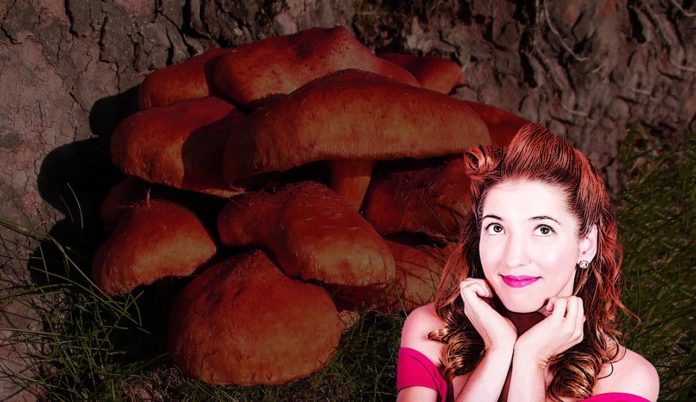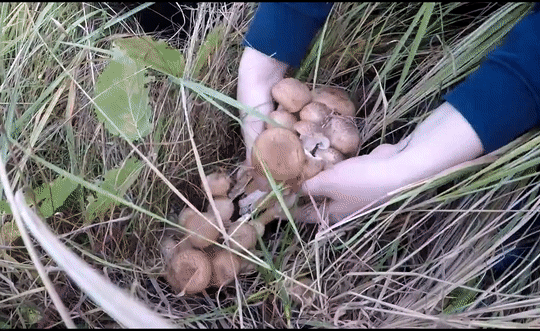
Researchers discovered that a gigantic honey mushroom, first spotted 25 years ago, has a very slow mutation rate that could hold the cure for cancer. This mushroom, known as Armillaria gallica, is around 2,500 years old, which makes it older than when Jesus was alive.
While the fungus could be much older, that is not the point. The point is that researchers believe that mushrooms, which gave us antibiotics, might also hold a clue as to how to solve the cancer problem.
Mushroom Holds Cure for Cancer
The researchers discovered that over the course of 25 years, the mushroom blossomed from 220,000 pounds to over 850,000 pounds. It also more than quadrupled its physical size. The scientists examined this huge mushroom and took samples from it to see how the cell mutations accumulated over the 25 years.
James B. Anderson, a biology professor at the University of Toronto, found that this mushroom mutated at a very slow rate. The fungus mutated so slowly that the health and appearance of it did not change much. Researchers are not completely sure how this happens, but they are trying to find out.

Cancer Mutates at a High Rate
Mutations in a human individual might eventually lead to cancer. Currently, people believe that this malignant disease can be treated effectively. If, for example, the mutation rate of human cells can slow down, it could help humans remain healthier for a longer period of time.
Humans Will Not Mutate in the Future
Cell mutations can decrease our lifespan. By preventing cell mutations or treating them better, we can possibly live twice as long.
With genetic engineering as well as anti-radiation research on their way to becoming more available for the public, the risk might be lower for future generations to mutate. If so, our descendants might have lesser risks for developing cancer. The honey mushroom might hold the key.


























